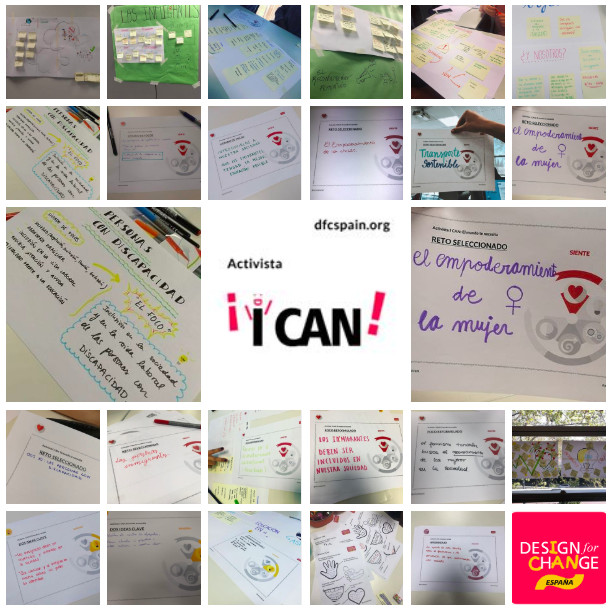Practice Description

Activista I CAN
by Design for Change Spain added on 07 Nov 2019
|
Brief description:
|
Activista I CAN is a non-formal science workshop developed by Design for Change Spain (DFC) with the goal of making children and youngsters take the role of change agents in their own communities. Participants identify key actions within the framework of the Sustainable Development Goals using DFC methodology. The process followed during the workshop is inspired by design thinking and it is structured in five different stages which range from identifying a challenge to generating ideas, prototyping, taking steps towards action and communicating the results. This method is based on the principle of learning by doing and it encourages experimentation and reflection at each stage. |
|---|---|
|
Photos:
|
|
|
Countries:
(where the practice takes place)
|
Spain |
|
Cities:
(where the practice takes place)
|
Not taking place at a specific city |
|
Organization name:
(running the practice)
|
Design for Change Spain |
|
Organization type:
|
Nonprofit |
|
Contact person:
|
Miguel Luengo Pierrard |
|
Contact email:
(for further information and inquiries)
|
spain@dfcworld.com |
|
Social media:
|
https://twitter.com/dfcspain
https://www.facebook.com/dfcspain
https://www.instagram.com/dfcspain/
https://www.linkedin.com/company/dfcspain/?originalSubdomain=es
https://www.youtube.com/user/D4CSpain
|
|
Related resources:
(e.g., web site, publications,media)
|
|
|
Participants’ age groups:
|
Age independent |
|
Indicative number of participants:
|
Number independent |
|
Oriented to a specific gender?
|
No |
|
Frequency:
(for the same group of participants)
|
Single-occasion |
|
Total duration:
(for the same group of participants)
|
2 - 4 hours |
|
Location:
(where the practice takes place)
|
|
|
What are the role(s) of the adult(s) running the practice?
|
|
|
During the practice, participants…
|
|
|
Participants work…
|
|
|
What type of materials do participants use?
|
|
|
Pedagogical approach:
|
|
|
Social justice/equity approaches:
|
|
|
Does the practice have (explicit or implicit) learning objectives?
|
Implicit: Development of key competences: learning to learn, linguistic competence, mathematical competence, basic competence in science and technology and social and civic competence |
|
Is the practice (explicitly or implicitly) connected to school curricula?
|
Yes, implicitly |
|
If connected in any way to school curricula, which subjects are covered?
|
|
|
Does the practice aim to have an impact on the engagement / interest of participants with a particular scientific topic, concept, phenomena, theory or career?
|
No |
|
Does the practice aim to have an impact on the attitude of participants with a particular scientific topic, concept, phenomena, theory, or career?
|
No |
|
Does the practice aim to have an impact on the behavior of participants related to a particular scientific topic, concept, phenomena, theory, or career?
|
No |
|
Does the practice aim to have an impact on the development / reinforcement / practice of skills of participants?
|
Yes: empathy, creativity, leadership, team work |
|
Additional notes:
|